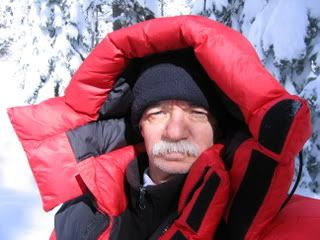Paddy, that wasn't quite what I meant really, but the two do have a lot in common. The problem with data like you suggest is this-data collection will probably work for vehicle accidents since they get reported if serious enough and anyone is injured
For a sport like skiing, however, accident reports will show, most likely, only those where no helmet was worn and an injury occurred and those where a helmet was worn and an injury still occurred.
What gets left out are those where a helmet was worn, an accident happens and no injury occurred-I've had several of those and no reason to report to anyone, other than my friend I was skiing with who saw me crash. I count those as crashes where a helmet helped, but no one knows that but me. I have no idea how hurt I would have been sans helmet, but for sure worse than a simple bang to the back of the head.
With beacons, different story-setting one off will generate a response because it's an active device, not a passive device like a helmet. The answer to that is question everyone rescued and ask them if they would have done what they did without a beacon. Then again, will they be honest about it?
Whittaker talks about being stranded for 5 days on Mt. Rainier. How many other people would have set off their beacon after only a day or two? My guess is most, because most Mt. Rainier climbers are not of Jim Whittaker's caliber.
A beacon, (PLB type), might have saved that PCT hiker who died a few years ago above Palm Springs. He wasn't that far off the trail, but no one could find him. A beacon would have not only narrowed down the search area, but let people know he was lost in the first place. Food for thought.
Edited by TomD (03/09/07 03:20 PM)
_________________________
Don't get me started, you know how I get.









 Previous Topic
Previous Topic Index
Index








